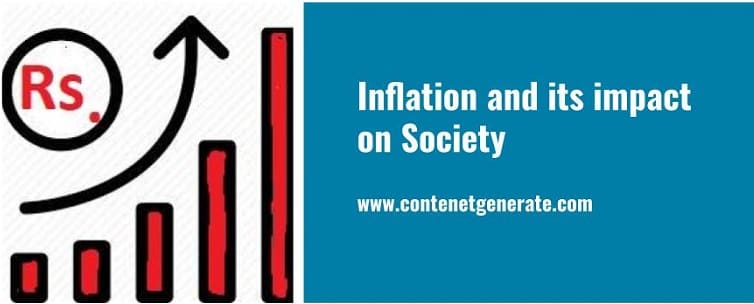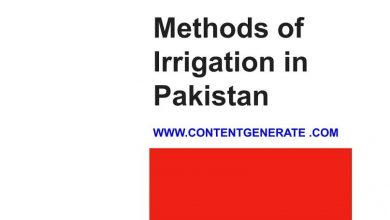What is the Impact of Inflation on Economy?

This article discusses the concept of inflation and its impact on the economy. You can also view a related PowerPoint presentation at the end of the post.
Contents
What is inflation?
The term inflation refers to a decrease in purchasing power of consumers because of an increase in the prices of goods and services. In other words, it can also be defined as a decline in purchasing power of a given currency over time.
What is the impact of inflation on the economy?
Inflation can have both positive and negative effects on both individuals and on the economy as a whole. Sometimes, it can be beneficial to the economic recovery if inflation occurs in a controlled manner. But, when inflation becomes too high, the economy can suffer adversely.
The article discusses both the favorable and unfavorable impacts of inflation on the economy.
Favorable impacts of inflation
Impact on producers
Inflation may have a positive impact on the producers as they will earn more profit. The extra money earned through an increase in prices will also lead to better investment returns for investors and entrepreneurs. They receive incentives for investing in productive activities i.e. tax exemption, grants, etc.
Increase in production
The extra money that industrialists earn through inflation is invested in industrial production. An increase in production will open doors for more jobs and better income.
Increase in the income of shareholders
The key shareholders can earn a good income as they share the increased profit earned through inflation. The companies as they get more profits they also share it with stakeholders.
Borrower related benefits
Inflation benefits borrowers if they have borrowed money before the price hike. This happens because the real value of the money returned by the borrower will be less than that of the current one.
Unfavorable impacts of inflation
Impact on fixed income groups
Inflation adversely affects people of fixed-income Groups, e.g. salaried workers, employees, pensioners, etc. As inflation increases, their income does not increase. Hence, they start compromising on the quality of life.
Rise of inequality in income distribution
High-income people can balance rising inflation with a correspondingly increased income. In contrast, the lower-income people would have to suffer as there is hardly any proportional rise in their income. Consequently, the lower-income households find themselves in poverty.
Moreover, rising inflation causes rising nominal interest rates as inflation leads to an increased burden of real tax on interest income. This negative impact on interest income sometimes leads to reduced interest in stocks. As a result, the stock exchange participation reduces as the investors would fear losing their money.
Another impact on lower-income groups is a decrease in saving with an uncertain future ahead. They would prefer to purchase consumer goods before their price further increase.
Disturbance in planning
Inflation creates uncertainty as to what extent the inflation rate will rise, thus discouraging investment. At the level of lower-income groups, people start to spend and stock up items to cope with the potential rise in price. This is how inflation also discourages money saving. This all suggests that inflation disturbs economic planning at the individual, organizational and state-level.
Investment on basis of speculation
The rise in inflation lures many people into a speculative investment. People start buying shares, residential buildings, plots that they will be able to sell with a high margin of profit when their prices will spike.
The purpose behind such investment is profit earning on the fast track. Speculative investment is not encouraged if we look at it from the broader economic perspective because it does not help create productive capital.
Reduced accumulation of Capital
With the uncertainty of prices of goods and services, the general desire and capacity for capital saving also reduce. In the case of investors, the capital available for future investment also shrinks. Since capital accumulation depends on investment growth, it is negatively impacted during periods of inflation.
Impact on money lenders
Unlike borrowers, money lenders e.g. individuals, credit societies, banks, etc. lose during the period of inflation. Because money at the time of loaning has lost its value which we call inflation. Its purchasing power has declined compared to the loaning time.
Impact on foreign exchange earnings
During the period of inflation, the value of industrial inputs i.e. raw material, power, labor, technology also increases. Consequently, the production cost of export goods also increases. This increase in the prices of exports might lead to a decrease in the value of the exports in the international market adversely affecting the overall economy.





This is an extraordinary topic elaborated very well.